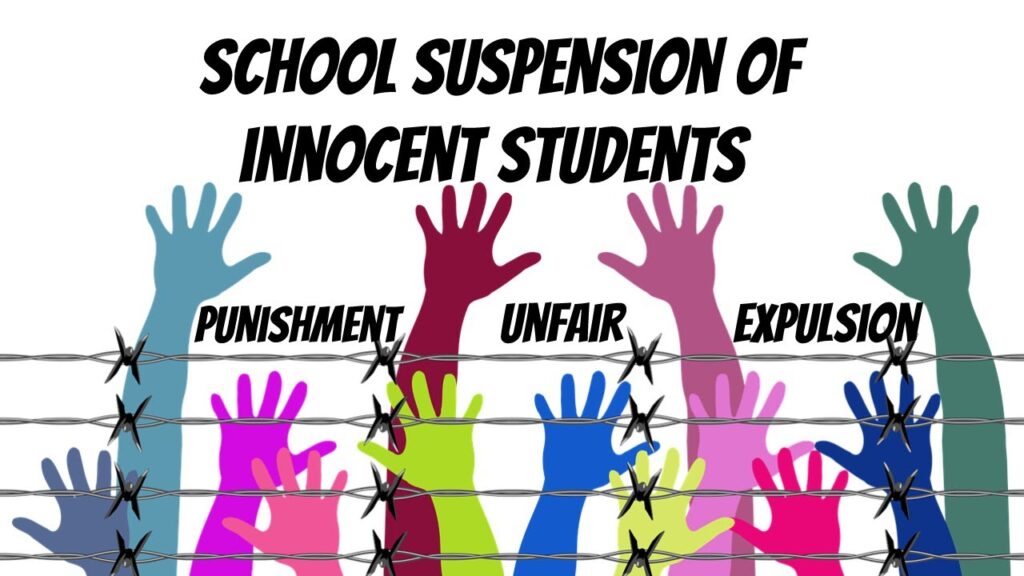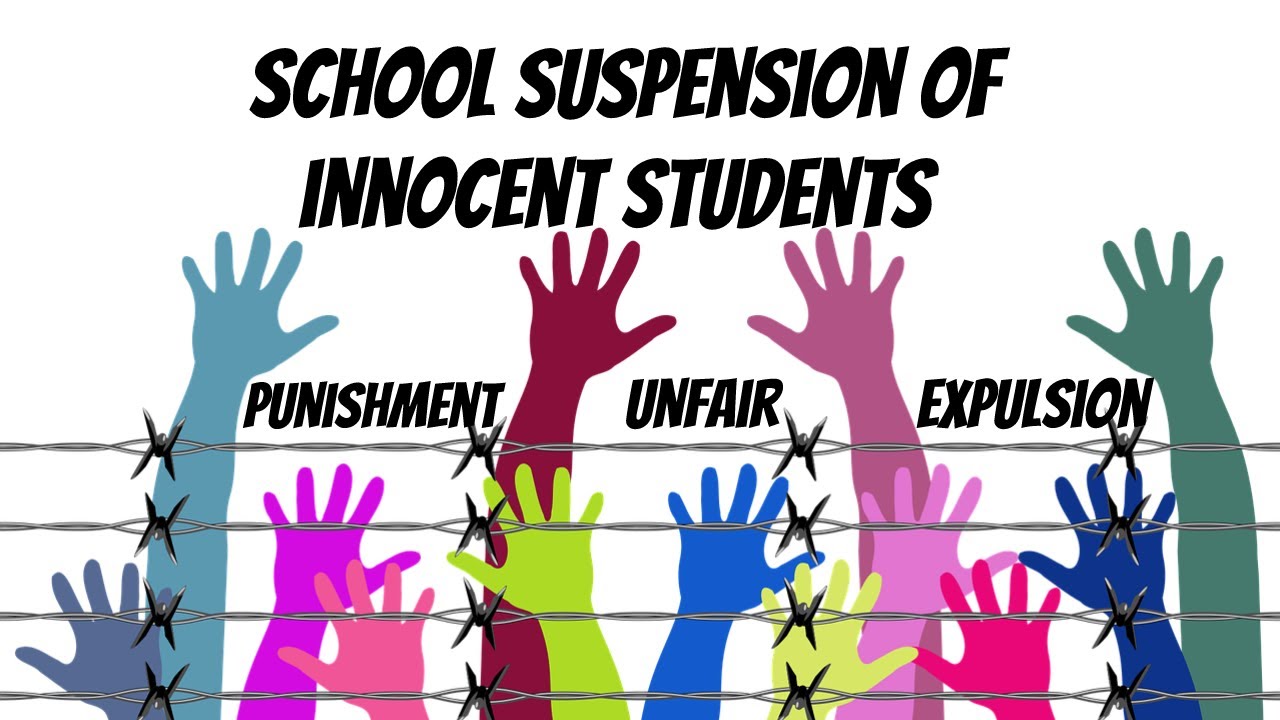
Suspended From School: Understanding the Consequences and Your Rights
Being suspended from school is a serious disciplinary action that can have significant consequences for a student’s academic career and future. Understanding the reasons behind a suspension, the process involved, and the rights students and parents have is crucial for navigating this challenging situation effectively. This article aims to provide a comprehensive overview of school suspensions, covering everything from the common causes and types of suspensions to the potential long-term effects and available legal recourse.
What Does It Mean to Be Suspended From School?
A school suspension is a temporary removal of a student from the educational environment as a form of disciplinary action. It typically results from a violation of school policies or codes of conduct. The duration of a suspension can range from a single day to several weeks, depending on the severity of the infraction and the school’s disciplinary policies. It’s important to differentiate between an in-school suspension and an out-of-school suspension.
In-School Suspension (ISS)
An in-school suspension requires the student to spend the school day in a designated area, often a separate classroom or office. While in ISS, students are typically expected to complete their regular schoolwork but are isolated from their peers and regular classroom activities. This type of suspension allows the student to remain under the school’s supervision and continue with their academic progress to some extent.
Out-of-School Suspension (OSS)
An out-of-school suspension, on the other hand, requires the student to stay away from the school premises entirely for the duration of the suspension. This means the student cannot attend classes, participate in extracurricular activities, or be present on school grounds. OSS is generally reserved for more serious offenses and can have a more significant impact on a student’s academic performance. [See also: Understanding School Disciplinary Procedures]
Common Reasons for School Suspension
Schools have disciplinary codes in place to maintain a safe and orderly learning environment. Violations of these codes can lead to suspension. Some of the most common reasons for school suspension include:
- Fighting and Physical Altercations: Any form of physical violence or aggression is a serious offense.
- Bullying and Harassment: Repeatedly targeting or intimidating another student can result in suspension.
- Possession of Weapons: Bringing any type of weapon onto school property is strictly prohibited.
- Drug and Alcohol Use: Possessing, using, or distributing drugs or alcohol on school grounds is a major offense.
- Disruptive Behavior: Continuously disrupting the learning environment can lead to disciplinary action.
- Theft and Vandalism: Damaging or stealing school property is a serious violation.
- Insubordination: Refusal to follow instructions from school staff can also result in suspension.
- Violation of School Policies: Many schools have specific policies regarding dress code, technology use, and other behaviors that, if violated, can lead to suspension.
The Suspension Process: What to Expect
The process of suspending a student typically involves several steps. While the specific procedures may vary depending on the school district and the nature of the offense, the following is a general outline:
- Investigation: The school administration will investigate the incident, gathering information from witnesses and the student involved.
- Notification: Parents or guardians are typically notified of the incident and the potential for suspension.
- Hearing or Meeting: A meeting or hearing may be held to allow the student to present their side of the story and for the administration to explain the charges.
- Decision: The school administration will make a decision regarding the suspension, taking into account the evidence presented and the school’s disciplinary policies.
- Notification of Suspension: If a suspension is issued, the student and parents will be notified in writing, including the duration of the suspension and any conditions for returning to school.
- Appeal Process: Many schools offer an appeal process for suspensions, allowing parents to challenge the decision. [See also: Appealing a School Suspension]
Understanding Your Rights During a School Suspension
Students and parents have certain rights when facing a school suspension. These rights are often protected by state and federal laws, including the right to due process. Due process generally includes the right to:
- Notice: Being informed of the charges against the student.
- Hearing: An opportunity to present their side of the story.
- Evidence: The ability to review the evidence against them.
- Representation: In some cases, the right to legal representation.
It’s crucial to understand these rights and to ensure that the school follows proper procedures throughout the suspension process. If you believe your rights have been violated, it’s advisable to seek legal counsel.
The Impact of Suspension on a Student’s Future
Being suspended from school can have a significant impact on a student’s academic performance, social development, and future opportunities. Some of the potential consequences include:
- Academic Setbacks: Missing class time can lead to falling behind in coursework and lower grades.
- Increased Risk of Dropping Out: Studies have shown that students who are suspended are more likely to drop out of school.
- Social Isolation: Suspension can lead to social isolation and damage relationships with peers.
- Negative Impact on College Applications: A suspension on a student’s record can negatively impact their chances of being accepted into college.
- Increased Risk of Involvement in the Juvenile Justice System: Some research suggests a link between school suspensions and involvement in the juvenile justice system.
Alternatives to Suspension
Many schools are exploring alternative disciplinary measures to address student misbehavior without resorting to suspension. These alternatives often focus on restorative justice, conflict resolution, and positive behavior interventions. Some common alternatives include:
- Restorative Justice: Bringing together the offender and the victim to repair the harm caused by the offense.
- Conflict Resolution: Teaching students how to resolve conflicts peacefully and constructively.
- Counseling: Providing students with counseling services to address underlying issues that may be contributing to their misbehavior.
- Behavioral Interventions: Implementing strategies to promote positive behavior and prevent future misbehavior.
What to Do If Your Child Is Suspended From School
If your child is suspended from school, it’s important to take the following steps:
- Stay Calm: It’s natural to feel upset or angry, but try to remain calm and objective.
- Gather Information: Talk to your child and the school administration to understand the reasons for the suspension.
- Review School Policies: Familiarize yourself with the school’s disciplinary policies and procedures.
- Attend Meetings: Attend any meetings or hearings scheduled by the school.
- Consider Appealing: If you believe the suspension is unfair or unwarranted, consider appealing the decision.
- Seek Support: Reach out to family, friends, or professionals for support.
- Focus on Prevention: Work with your child and the school to address the underlying issues that led to the suspension and prevent future incidents.
Seeking Legal Advice
In some cases, it may be necessary to seek legal advice if your child is suspended from school. This is especially important if you believe your child’s rights have been violated or if the suspension is based on discriminatory practices. An attorney specializing in education law can provide guidance and representation throughout the suspension process. Understanding your rights and seeking appropriate support can help you navigate the complexities of a school suspension and ensure the best possible outcome for your child.
Suspended from school is never an easy situation, but by understanding the process, your rights, and the potential consequences, you can advocate for your child and work towards a positive resolution.

